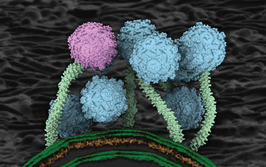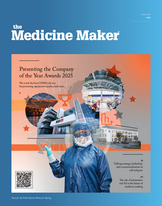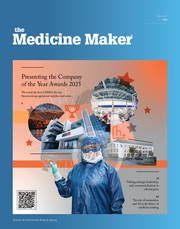Quality Over Quantity: EMA's New Approach to Biosimilars
EMA reflection paper considers elimination of routine comparative efficacy studies for biosimilars.

In a move that could reshape the biosimilar development landscape in Europe, the European Medicines Agency (EMA) has released a draft reflection paper advocating for a tailored clinical approach that could, in many cases, eliminate the need for routine comparative efficacy studies (CES) for biosimilars. The paper, published by the Committee for Medicinal Products for Human Use (CHMP), outlines conditions under which biosimilars could be approved based largely on analytical, in vitro pharmacology, and pharmacokinetic (PK) data.
According to the EMA, the proposal responds to increasing scientific confidence in the sensitivity of modern analytical techniques, as well as a growing consensus that CES often add limited value to biosimilar development. Structural and functional similarity between a biosimilar and its reference medicinal product, established through high-resolution analytical characterization and functional assays could be sufficient to infer comparable clinical performance.
The paper states that “structure determines function,” reaffirming the long-standing pharmacological principle that therapeutic activity is tightly linked to a molecule’s structure. By demonstrating physicochemical and functional similarity, and confirming similar pharmacokinetics in humans, developers may no longer need to conduct costly and time-consuming efficacy trials, especially when the mechanism of action is well understood.
Revisiting the role of efficacy trials
The EMA cites regulatory experience and a growing body of literature showing that results from CES rarely overturn conclusions already supported by earlier stages of biosimilar assessment. In cases where biosimilars target diseases with small patient populations or complex treatment regimens – where efficacy trials are difficult or infeasible – the tailored approach could lower development hurdles.
The reflection paper stresses, however, that biosimilars seeking to benefit from reduced clinical requirements must meet stringent prerequisites. These include comprehensive molecular characterization, validated functional assays, a robust manufacturing process, and a pre-defined similarity assessment protocol.
Minor differences in critical quality attributes could be deemed acceptable, provided they are scientifically justified and do not impact safety or efficacy. However, large deviations in attributes such as glycosylation, protein content, or bioactivity could still necessitate additional data, including CES, or prompt changes to the manufacturing process.
While PK studies remain central to biosimilar development, the EMA proposes they could be adapted in lieu of CES to include limited safety and immunogenicity data. In some cases, multiple-dose PK studies may be warranted – particularly when the development of anti-drug antibodies could impact long-term efficacy or safety.
Pharmacodynamic assessments, traditionally used to support waiving CES, may also be omitted if structural and functional similarity is conclusively demonstrated. However, their inclusion is encouraged when practical and informative, especially if pharmacodynamic markers reflect the mechanism of action.
Public consultation on the reflection paper runs through September 30, 2025.
Following a Bachelor’s degree in English Literature and a Master’s in Creative Writing, I entered the world of publishing as a proofreader, working my way up to editor. The career so far has taken me to some amazing places, and I’m excited to see where I can go with Texere and The Medicine Maker.



















